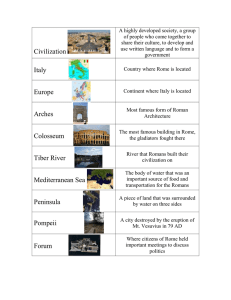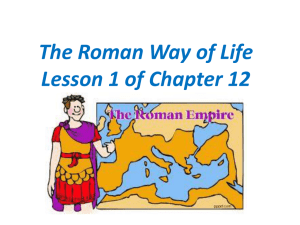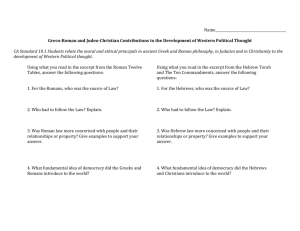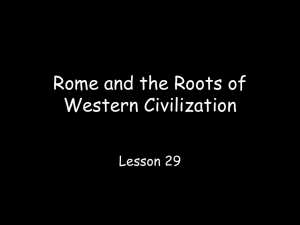Rome and the Roots of Western Civilization
advertisement
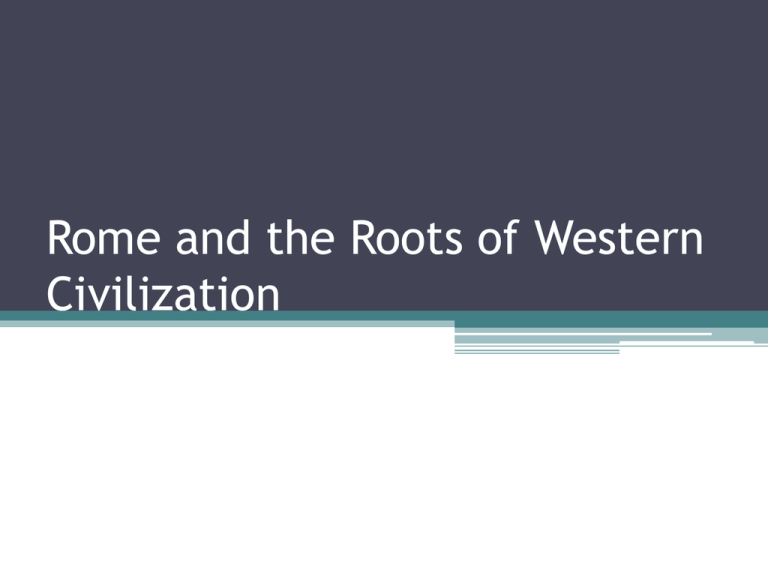
Rome and the Roots of Western Civilization Legacy of Greco-Roman Civilization • Under the Roman Empire, hundreds of territories were knitted into a single state and each province and city was governed in the same way. • The Romans greatly admired the Greek culture and the mixing of elements of Greek, Hellenistic and Roman culture produced a new culture called Greco-Roman culture or classical civilization. Roman Fine Arts • Romans learned the art of sculpture from the Greeks. • The reign of Augustus was a period of great artistic achievement. • The Romans further developed a type of sculpture called bas-relief during this time. Bas-Relief Mosaics • Mosaics are pictures or designs made by setting small pieces of stone, tile or glass onto a surface. • Most Roman villas had at least one colorful mosaic Painting • Romans also excelled at painting and most wealthy Romans had bright, large murals called frescoes painted directly on their walls. Learning and Literature • The Romans borrowed much of their philosophy from the Greeks and Stoicism was especially influential. • The poet Virgil spent 10 years writing the most famous work of Latin literature, the Aeneid. • The poet Ovid wrote light and witty poetry for enjoyment. • Livy complied a multivolume history of Rome from its origins to 9 B.C.E. • Tacitus is notable because he presented the facts accurately. Latin Language • Latin remained the language of learning long after the fall of Rome and was the official language of the Roman Catholic Church until the 20th century. • Latin was also adopted by many different people and developed into French, Spanish, Portuguese, Italian and Romanian. Master Builders • The arch, dome and concrete were combined to build spectacular structures such as the Colosseum. • Because Roman architectural forms were so practical, they have remained popular. • Thomas Jefferson began a Roman revival in the U.S. in the 18th century. Roman System of Law • Rome’s most lasting and widespread contribution was its law. • Some of the most important principles were 1-all people had the right to equal treatment under the law, 2-a person was considered innocent until proven guilty, 3-the burden of proof rested with the accuser not the accused, 4-a person should be punished only for actions, not thought and 5-any law that seemed unreasonable or grossly unfair could be set aside. Rome’s Enduring Influence • By preserving and adding to Greek civilization, Rome strengthened the Western cultural tradition. • Historian R.H. Barrow has said the Rome never fell because it turned into something even greater-an idea-and achieved immortality.
